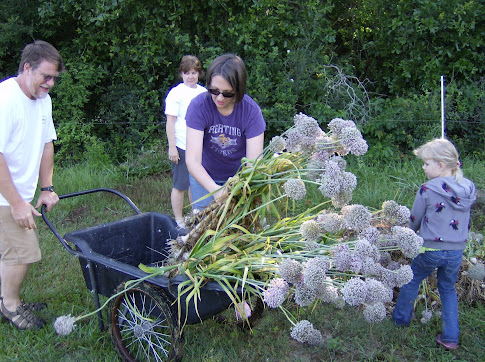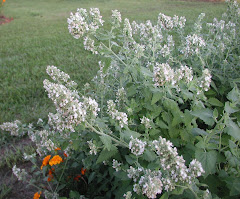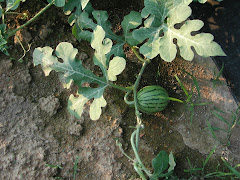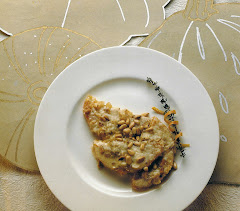
 Half an hour later, I had a bucket (of the 5 gallon kind) of yellow squash and a bucket of zucchini. The CSA doesn't start for another two weeks! I kept thinking - 'stop! stop! It's not time!...but the squash says HAHAHA.
Half an hour later, I had a bucket (of the 5 gallon kind) of yellow squash and a bucket of zucchini. The CSA doesn't start for another two weeks! I kept thinking - 'stop! stop! It's not time!...but the squash says HAHAHA.
Thais and Will Perkins: A Louisiana gardening adventure.

 Half an hour later, I had a bucket (of the 5 gallon kind) of yellow squash and a bucket of zucchini. The CSA doesn't start for another two weeks! I kept thinking - 'stop! stop! It's not time!...but the squash says HAHAHA.
Half an hour later, I had a bucket (of the 5 gallon kind) of yellow squash and a bucket of zucchini. The CSA doesn't start for another two weeks! I kept thinking - 'stop! stop! It's not time!...but the squash says HAHAHA.




 ...and we were so anxious back in January and February - we planted WAY too many tomatoes. Before we knew it, we had all we could possibly put in the ground and many more. We put up a little sign..Tomatoes For Sale. I've sold 60 plants since yesterday. What were we thinking?
...and we were so anxious back in January and February - we planted WAY too many tomatoes. Before we knew it, we had all we could possibly put in the ground and many more. We put up a little sign..Tomatoes For Sale. I've sold 60 plants since yesterday. What were we thinking? Today it is around 90 degrees. This not only means that it is hot...it also means you have to go out in the heat and drag hoses around and water stuff. No rain lately. That's farming, though.
Today it is around 90 degrees. This not only means that it is hot...it also means you have to go out in the heat and drag hoses around and water stuff. No rain lately. That's farming, though.  Meanwhile, there are csa members all over the place doing the hard work of getting ready for the season: re-planting the spinach and covering it up;
Meanwhile, there are csa members all over the place doing the hard work of getting ready for the season: re-planting the spinach and covering it up;  planting the little okra plants in amongst the garlic; we had to do this because we're flat out of room.
planting the little okra plants in amongst the garlic; we had to do this because we're flat out of room.  But it ought to work - the only little problematic thing will be pulling up the garlic when the time comes and not puling up the okra along with it!
But it ought to work - the only little problematic thing will be pulling up the garlic when the time comes and not puling up the okra along with it!  setting out the teeny tiny pak choi, and also the rainbow chard;
setting out the teeny tiny pak choi, and also the rainbow chard; 



 you see, that's the problem with farming...endless projects. And that's ok. Unless the other guy has a project that involves not him, but you!...Turns out it was relatively harmless - and well-meaning. He was going to go on a MOWING EXTRAVAGANZA. Translated, this means 'we got the mower back from the shop again, and I'm going to mow everything in sight before the mower breaks!'
you see, that's the problem with farming...endless projects. And that's ok. Unless the other guy has a project that involves not him, but you!...Turns out it was relatively harmless - and well-meaning. He was going to go on a MOWING EXTRAVAGANZA. Translated, this means 'we got the mower back from the shop again, and I'm going to mow everything in sight before the mower breaks!'  The mint beds look exactly like they did before - but the dryer is running and the whole house smells like mint...a first harvest of the year...very nice.
The mint beds look exactly like they did before - but the dryer is running and the whole house smells like mint...a first harvest of the year...very nice. and the kids were well-behaved and adorable...
and the kids were well-behaved and adorable...  you can always spot a Future Babysitter of America
you can always spot a Future Babysitter of America 



We are entering the sixth season of our CSA (Community Support Agriculture). What began as an experiment for the creative marketing of our produce has developed into a fulfilling experience for us and our members, one that we so look forward to each year. What you will find below is an explanation of how we operate the CSA, the cost, length of season, expected commitment, etc. We ask that you read it carefully before responding. We have dedicated members that stay on year after year, but for a number of folks, it is challenging to come out every Saturday for nine weeks running and to have time to participate. For those who love the quality of the vegetables, herbs, and flowers – and who like the experience of planting, harvesting, and interacting with others who have the same likes, it is a very rewarding experience. Please read on…
What is Community Supported Agriculture? (CSA)
Community supported agriculture is a movement that got its start in this country in the mid-1980’s, driven by a desire by neighborhood groups to re-connect with local growers and producers. The CSA movement is enjoying increasing popularity and availability with each passing year. The goal of CSA is to involve the vegetable-eating-public more intimately with “their” farm. Why do I use “their” in that description? Because in CSA, members buy a share of the farm which, in effect, provides them an ownership stake in the vegetables produced. In that respect, the farmer and consumer become partners. There are many benefits from this relationship to the farmer and consumer alike. For the farmer, it provides a guarantee of sales so he can plant to supply his contract. It also minimizes the time required to market the produce, freeing him up for what he does best, which is…farm. For the consumer, it guarantees a steady supply of farm fresh produce for a fixed price, encouraging healthy eating, and promoting a sense of participation and community around the farm that has been long lost in the age of industrial agriculture. For both the farmer and consumer, it promotes a bond based on trust and mutual interest. For those interested in information on CSA and farms that have set up these systems, the web has worlds of information available with a simple word search.
Why did Port Hudson Organics decided to become Port Hudson CSA?
For most of you who have spent any time visiting our farm and talking with us, you are aware that Thais and I both work full time, maintaining our little farm, bee hives, yard, and other farm-related activities in our “spare” time. This means that virtually every waking hour that we are not at work you would find us in the field or manning the produce tent (or carport). As we expanded our farm-related enterprises to areas such as biodiesel, berries and bee hives, the farm demands finally exceeded our available time. So in 2009, in order to continue our farm sustainability effort and reduce our time commitment (primarily the time spent selling), we tried a concept that is becoming increasingly popular across the country in the “Eat fresh, Eat local” movement, that is, the CSA farm. In the spring of 2009, we enrolled (what ended up to be) 25 CSA member families, and were blown-away by the success of the venture. Member enthusiasm, assistance, and clear appreciation for the unsurpassed quality of our produce resulted in an excellent experience for everyone involved. Since then, we have expanded our enrollment to approximately 40 member families, which is a comfortable carrying capacity of our one acre garden. At this point in our lives, with regular jobs and other commitments, we have no plans to expand further.
What kind of vegetables are grown and how are they distributed?
We grow a wide variety of Spring and Summer vegetables (generally about 20 different varieties). At any time during the season, you can expect around 12-15 different offerings, and 6-8 culinary herbs. We also grow cut flowers, usually zinnias and sunflowers. Each week members will receive a selection list by email. Members then make 7 selections of vegetables and 2 selections of herbs from the list. Members can check off their first and second preferences and we will make every effort to supply the members with their selected items. In cases where we are short on a particular item, say, yellow squash, we will substitute another available vegetable (for example, zucchini) from member’s second choice selection if at all possible. Members are free to make notes on their list if there is a particular vegetable they do not want (for example, zucchini) and we will try to honor their request. The amounts (pounds or numbers) of vegetables or herbs per selection were based on an approximation of equal value based on the prices we have charged for these items in the past. And as last year’s members know, the amounts of produce on the list are the minimum amount you will receive. Often, when there is a surplus beyond what has been selected, we will throw in some “lagniappe”. Members should note that there are a couple of exceptions on the selection list: a bouquet of flowers, when available, counts as two selections from the herb list; similarly, watermelon, when available, counts as two selections from the vegetable list. Each week, a basket with all of your produce and herbs will be made up with your list attached. Blank lists will be available for you to fill out for the following week, as the mix of produce and herbs change with the weather.
Can I select more than one of a particular item?
Yes, if you want 6 pounds of tomatoes one week, you can simply put the number “3” next to the selection “2 lbs. tomatoes” on your sheet and pick four other vegetable selections to make a total of seven selections. If we have enough tomatoes to satisfy your request, we will provide that amount. If we are short, we will attempt to at least provide you with one selection of tomatoes and make up the rest of your basket with other choices. We will let members know each week which vegetables we expect to have in abundance. For example, due to space considerations, we have limited plantings of corn and each planting is generally available for only one Saturday, so we will be encouraging members to select as much corn as they can from the list on the weeks that corn becomes available (we try to send out weekly emails on the state of the farm). Of course, members will also be given preference for the purchase of additional vegetables if, for example, you want to freeze a bushel of corn when it comes in and there is surplus available.
How will the CSA Baskets be distributed?
Members choose to come to the farm either Friday evening or Saturday morning each week during the season. Once you arrive, you can choose from a variety of garden activities in progress and lend a hand. This can range from planting and/or picking vegetables; washing, weighing, and bundling produce; cutting and arranging flowers; cutting and separating herbs to order; helping to pack baskets with weekly selections; sitting under a tree with other members and stripping beans off of plants. Occasionally there is a bigger project at hand, such as erecting the cucumber fence or helping to mulch rows with hay. There will be weeks when you are not able to help due to your schedule, but we find that most of our members help out almost every week. The process takes about an hour, and when you leave you bring your weekly basket with you. Many find this outdoor activity in the garden a respite from their work week in an office!
Members are asked to pick up their CSA baskets each Saturday by 10:00 AM. This is probably the biggest commitment you will make as part of the CSA. We understand that it may be difficult to come every Saturday for 9 weeks, but there are a couple of strategies you can employ to make this easier. (1) you can buddy-up with one or more members in your area and go on alternate Saturdays, each delivering or holding the other’s basket for pick up at their house; (2) you can send a family member or close friend; or (3) you can come Friday afternoon to help with the harvest and bring your basket home with you then (we had a lot of members take this option, as we do a lot of harvesting on Friday in advance of the Saturday bedlam).
What if you have a crop failure or natural disaster?
A CSA is a partnership between the farmer and the consumer, and within this partnership is an understanding of shared risk. That said, we do not expect members to bear the full cost of a catastrophic failure, nor have we ever experienced a completely failed season. Should the worst happen, members will be reimbursed a portion of their investment and we will do all in our power to make it right with members through a combination of refunds and discounts on following seasons.
What time commitment is asked as part of the CSA?
CSAs, by definition, include member support. Each week, literally hundreds of pounds of produce must be harvested, hundreds of bunches of herbs must be clipped and tied, and dozens of flower bouquets must be picked. Without member support, this is logistically impossible for part time farmers. Hence, we ask members to commit to help in some fashion (picking, sorting, filling orders, etc) according to their abilities every other weekend or so (we are not rigid on this). We have found that members enjoy becoming involved in the process. Learning about how food is grown and harvested is an uplifting and educational experience. After all, that is why we do it. And it is an integral part of CSA farms across the country. We are assuming that you found us because you appreciate this connection, and we hope that you can find the small amount of time to required to experience that connection.
What is the cost?
Cost of the CSA membership is $350. This covers 9 weeks of farm fresh vegetables, herbs, and flowers of your choice. This comes out to about $38 per week, probably more than you would pay at the grocery store for conventionally-grown produce, but less than you would pay for organic produce at Whole Foods. The quality of the produce, however, cannot be approached by any supermarket, and the experience is priceless. Also, membership in the CSA includes a pint of our farm honey when it becomes available.
In Summary
So that about covers it. If you want to experience first hand the pleasures of seeing, smelling, picking and eating truly wholesome food, please respond quickly to this email. We would appreciate some information on you and your family, and why you want to join the CSA. We will let you know within a few days, and will ask for payment at that time. We ask that you understand that we have about twice as many families on the waiting list as we have openings. However, if you do not make in into the CSA this year, we will give you first shot at joining next year if you are still interested.
Thank you so much for your interest in our little farm. We hope to see you this spring.
Will & Thais Perkins
Port Hudson Organics CSA





























































